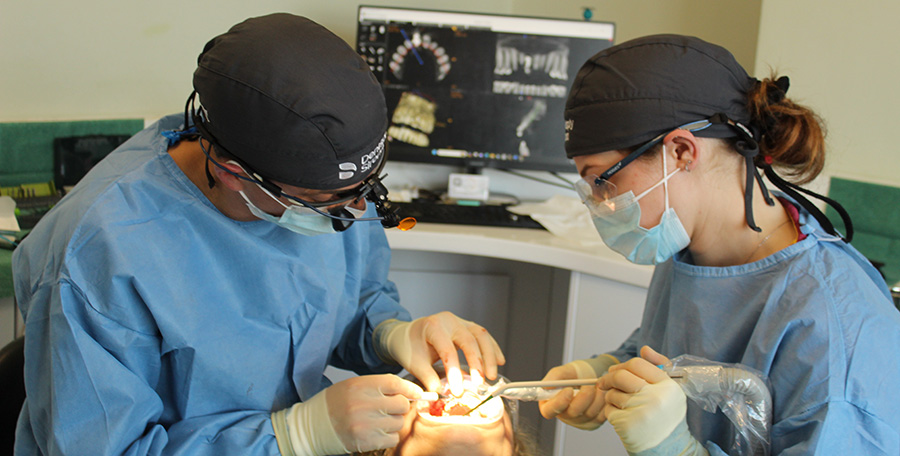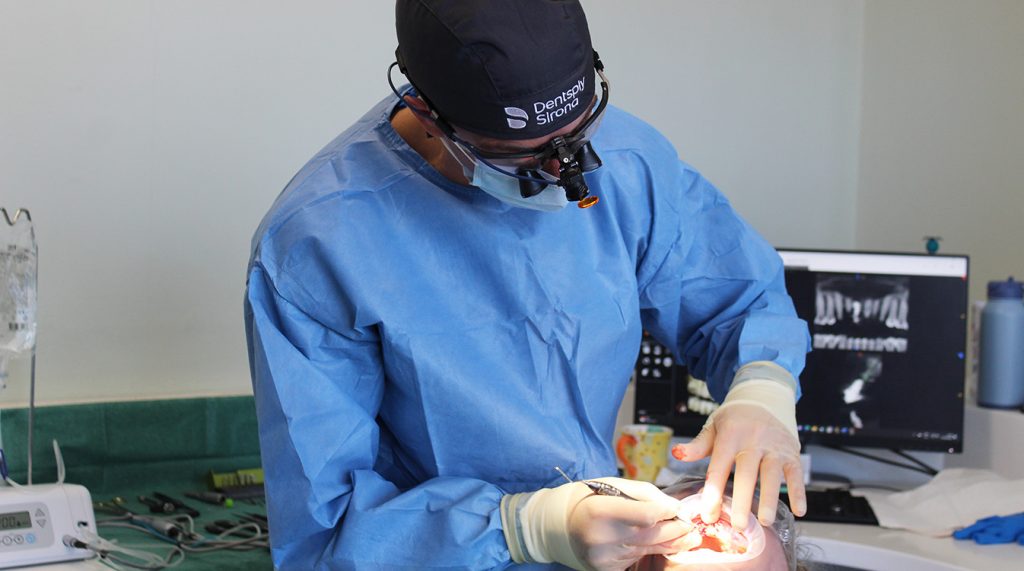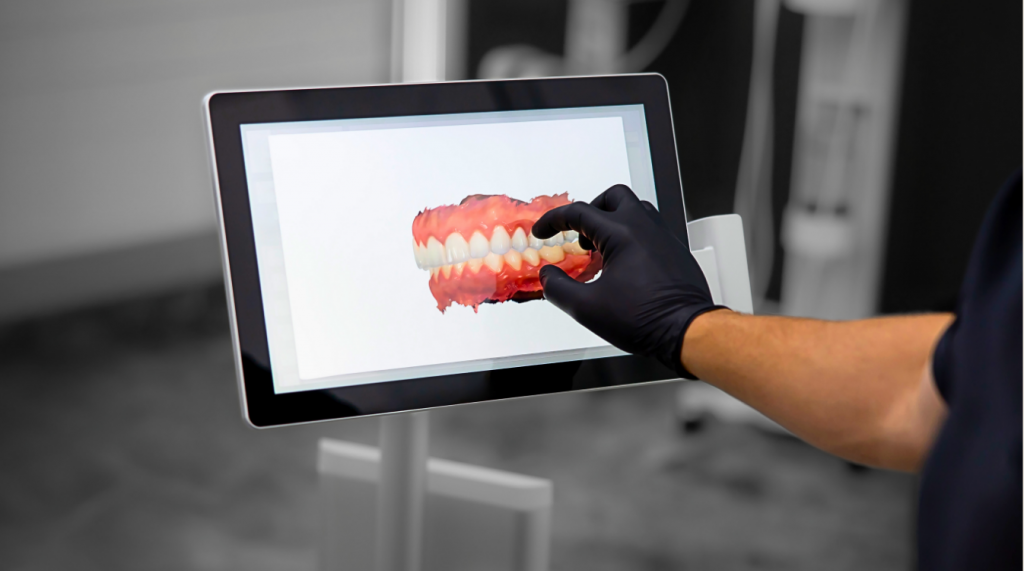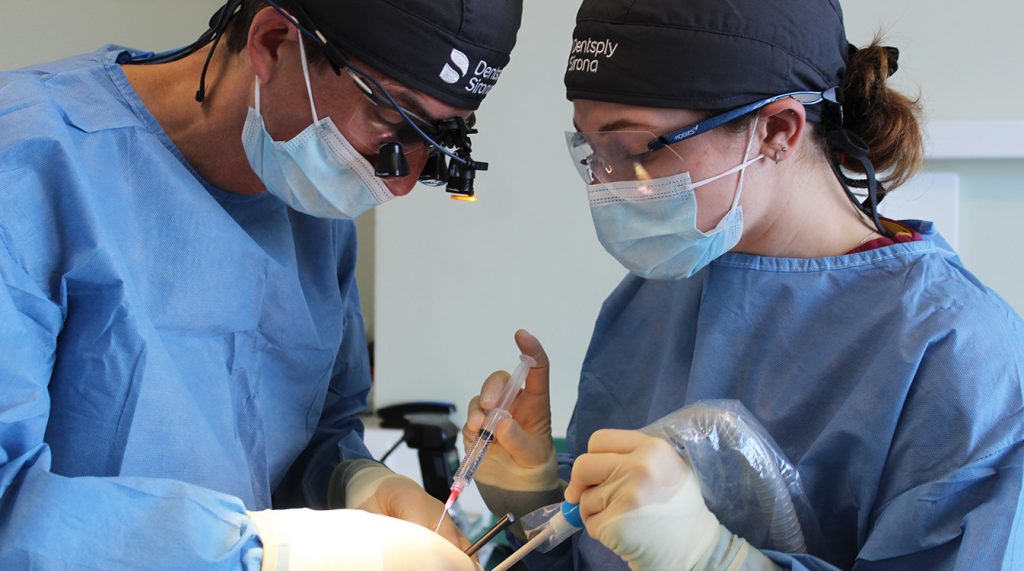
Led by Nigel Suggett, one of the North East’s top implant dentists with exceptional skill and experience.
CBCT 3D scanning ensures precise, safe, and predictable implant placement.
Implants are crafted to look, feel, and function just like your natural teeth.
Every treatment is tailored to your needs, with premium materials and techniques.
Warm, supportive team guiding you every step, from consultation to aftercare.
Highly recommended by patients and respected as a mentor by fellow dentists.

At Seaham Smiles, clinical excellence meets truly personalised care.
Our practice is led by Nigel Suggett, one of the North East’s most respected implant dentists. With a sole focus on implant dentistry, Nigel brings deep expertise to every case.
We take the time to understand your needs, plan with precision, and deliver care that restores your smile’s beauty, comfort, and function. From your first consultation to your final result, every step is thoughtfully tailored to you.

Your safety and results matter to us. That’s why we use state-of-the-art CBCT 3D scanning for precise implant placement and partner with Dentsply Sirona — one of the world’s top implant manufacturers. With Nigel’s expertise and due diligence, we surpass national success rates (achieving 98%), ensuring you receive a durable, natural-looking solution designed to last.

We believe exceptional dentistry goes beyond the procedure. Our dedicated implant co-ordinator, Ellie, will be by your side to guide you through each stage — from your free consultation and scan to your clinical assessment, treatment, and aftercare. We offer both local anaesthetic and IV sedation to keep you comfortable and provide a 5-year implant guarantee, so you can feel confident in your investment.
“The dynamic duo Nigel and Ellie were friendly, attentive and professional throughout.”
– Paul Canvino
Fill out the form below and our team will get back to you shortly.
Select a contact option below and start chatting to our friendly team.
Implants are medical devices placed into bone, and as with all treatments, a small proportion of patients do have failures. Failures are more common when patients have identifiable risk factors that may predispose them to an increased risk of failure. As part of the consultation process, Nigel will discuss your individual risk profile and discuss the likely success rate of your implant treatment. Implant work, like all other dental treatments, will not succeed unless good oral hygiene is maintained. Implants are very similar to natural teeth, and patients who are prone to gum problems can experience similar problems. Because implants are placed into bone, the support of adequate bone and gums is required for successful treatment.
An implant is an artificial root that replaces the root of a missing tooth. It can be placed in either the upper or lower jaw and, in time, will bond with your jawbone to create a firm foundation to which a replacement false tooth, bridge or denture is fixed.
If looked after properly, dental implants last for many years and long into the future – they are the longest-lasting option for a missing tooth available on the market today.
Yes, if you are over 18 and in reasonably good health. Our thorough assessment will determine whether dental implants are the right option for you. At your implant assessment consultation, your mouth would first be examined and then appropriate x-rays, models and photographs taken. If implants are appropriate, a full treatment plan would be developed together with an estimate of the costs of providing the treatment.
Tooth implants can be used for a wide range of treatment from one implant to replace one missing tooth, two implants to secure a loose denture, through to multiple implants to replace all the teeth in the mouth.
Dental implant treatment starts from £2,600, and payment options are available, including 0% finance. Over time, dental implants will prove to be the most cost-effective solution to replacing missing teeth.
The implant screw or post that replaces the root of a missing tooth is made from titanium, which is biocompatible with bone structure, allowing it to bond with the jawbone to provide a secure anchor.
Dental implant treatment is complex and involves multiple visits to the practice. The minimum treatment time is usually a few months, and for most patients it takes three to four months. For more complex treatment, it can take over a year, although this is unusual.
Patients can experience some bruising, a dull ache, swelling and discomfort. The effects vary depending on the number of implants being placed, and the symptoms can usually be managed with painkillers or a cold pack. Damage to nerves or roots of adjacent teeth can occur, but it is not common. When choosing a date for implant placement, avoid significant social engagements and work commitments for a week, to be on the safe side. Taking time off work is not usually necessary.
Following an initial consultation to assess for suitability, you will usually require X-rays or CBCT scans. If necessary, bone rebuilding will then be carried out to repair any missing bone – although this procedure sounds alarming, please rest assured that it is quite straightforward and can be completed in-house at Brunswick Dental. Once your teeth and gums are healthy, you will have surgery to place the implants using a local anaesthetic. The procedure takes one or two hours, depending on the number of implants being placed. Healing takes between three and six months. For some patients, it may be possible to place a temporary crown. This will need careful cleaning, and it is important to limit the amount of biting force. Further visits will check healing and once fully healed, the missing teeth will be restored. This part usually requires multiple visits; each restoration is individually crafted.
Smoking is a major factor in treatment failure, and complete cessation is recommended. For people who grind their teeth, it may be wise to have a plastic guard made to protect the implants and teeth from damage or failure.